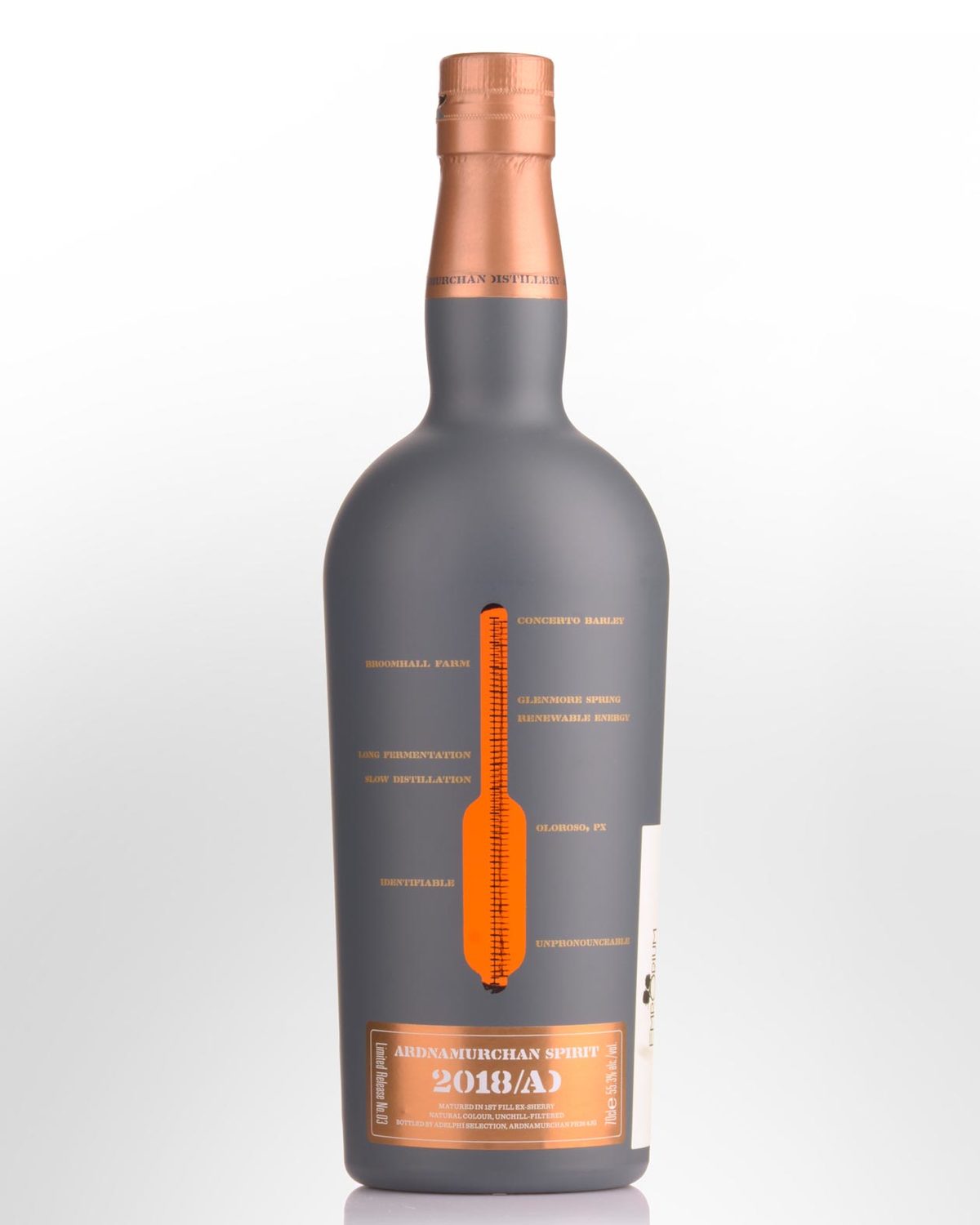
Ardnamurchan Spirit 2018 AD (700ml)
Highlands,
SCOTLAND
$199. 00
Bottle
$2388.00 Dozen
ABV: 55.3%
Limited to one bottle per customer.
This is the third spirit to be released from Adelphi’s new project, Ardnamurchan, the most Westerly distillery in mainland Scotland. Demand for the first two bottlings massively outstripped supply (prices of the 2016 spirit at auction reached “well above” the original retail price only a few months after its release). These limited edition 'works in progress' will culminate in a whisky that won’t be available until its aged a minimum of seven years, meaning 2021. The 2018 Ardnamurchan contains some 3 and 4 year old stock, but still can't legally be called whisky. The full inventory is as follows: 20 American oak ex Oloroso and PX octaves, unpeated Ardnamurchan (55 litre original fill)4 American oak ex Oloroso and PX octaves, peated Ardnamurchan (55 litre original fill)
1 Spanish oak ex PX hogshead, peated Ardnamurchan (250 litre original fill)
1 Spanish oak ex Oloroso hogshead, peated Ardnamurchan (250 litre original fill)
1 Spanish oak ex Oloroso butt, unpeated Ardnamurchan (500 litre original fill)
1 Spanish oak ex PX butt, peated Ardnamurchan (500 litre original fill)
1 Spanish oak ex Oloroso butt, peated Ardnamurchan (500 litre original fill)
Adelphi started investigating options to meet demand for their whiskies years ago and realised the future lay in establishing their own distillery (rather than sticking to purchasing casks or acquiring an existing distillery). So Ardnamurchan was built, South-East of the village of Glenbeg in the vicinity of the Adelphi headquarters. Opened in July 2014 and designed as an eco-friendly operation, all the power and heat requirements for the Ardnamurchan Distillery come from local renewables – the river that provides the distillery’s cooling water has a hydro-electricity generator and the biomass boiler is fuelled by woodchip from local forestry – the overall footprint of the distillery is a light one. In addition, the by-products of the whisky-making process are recycled on the peninsula – the still energy-rich draff (what’s left in the mash tun) being used to feed all the livestock on the peninsula, and the pot ale (what’s left in the stills) as fertiliser.
